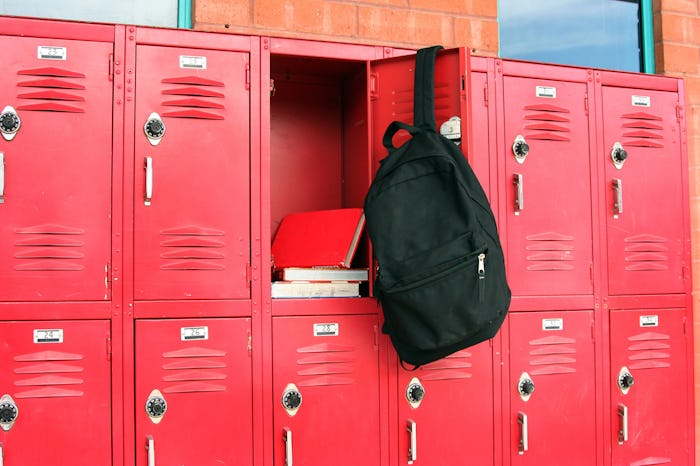Life
Study: Suspending Kids Over Small Violations In School Is Causing More Harm Than Good
For many kids, suspensions are rapidly becoming a normalized form of discipline within their schools. Some might argue that suspensions, or essentially kicking kids out of school temporarily, help students learn how to behave, but how much truth is there to that? According to a new study, suspending kids over small violations in school is actually causing more harm than good. In other words, it's time for everyone to seriously look at how we set up the idea of discipline in schools.
The idea that suspensions are causing more harm than good, and being used to target marginalized students, isn't new. In 2016, for instance, The Atlantic published an article detailing how charter schools are suspending Black and disabled students more. Similarly, in 2018, the Star Tribune reported that minority and disabled students were more likely to be suspended or even expelled in Minnesota schools.
In a new study, published in the Educational Evaluation and Policy Analysis, researchers from Mathematica Policy Research and the University of Pennsylvania found that suspending kids for minor infractions, such as swearing, have no real benefits. The study came out of increasing debates surrounding the effects of out-of-school suspension, according to The 74 Million, and that's pretty important.
Researchers used student panel data from the School District of Philadelphia, according to Sage Journals. This data covered the 2011-12 and the 2013-14 school years, according to The 74 Million. "Students who are suspended for serious and minor infractions experience a decline in math and English test scores at similar rates," The 74 Million reported, "and suspended students are between 2 and 9 percentage points less likely to achieve academic proficiency in math."
Those test scores are bigger than simply missing a couple points. They also determine whether a student is working at grade level. When a student declines, that means they are no longer working at a proficient level for their grade, and that's pretty serious.
Since students of color are suspended at higher rates, as noted by The Atlantic, that also means they are disproportionately affected by those education gaps. According to The 74 Million, Johanna Lacoe, co-author of the report, explained:
I don’t think anything good comes from just sending kids home without addressing what’s going on. It’s just such a short-term solution to the issue. What would be much better, in my opinion, would be a school-wide approach that tried to prevent that misbehavior in the first place.
Many groups have been working to implement changes in the school system. In California, Restorative Justice For Oakland Youth has worked to implement restorative justice practices in schools. The organization describes restorative justice as "a fundamental shift in the way we think about and do justice."
It is, essentially, a model of repairing harm that contrasts models based in punishment. Instead of focusing on what law was broken, who did it, and how to punish them, RJOY noted that restorative justice asks:
Who was harmed?
What are the responsibilities of all affected?
How do all affected parties together address needs and repair harm?
In St. Paul, Minnesota, schools rolled out their own restorative justice programming, according to Twin Cities. In 2016, Psychology Today covered a new study that revealed six benefits of restorative practices in schools. Benefits included promoting healthier dialogue within schools, between both peers or adults they communicated with, and it helped increase confidence in students.
Even in London, students are raising awareness about the effects of suspensions. One Twitter user posted an image of transit maps replaced by maps of the school-to-prison pipeline, saying, "Today is #GCSEResultsDay and northern line tube maps have been replaced by maps of the School to Prison pipeline!! Haven’t seen anything like this before #EducationNotExclusion."
Rethinking how harm is understood and discussed is really important. It's clear that suspending kids, particularly for minor infractions, is not working. Instead, it actively harms them by removing students from school and making it into a kind of hostile territory. Hopefully, as more studies emerge exploring the impacts of suspension across schools, changes will come to more schools.
